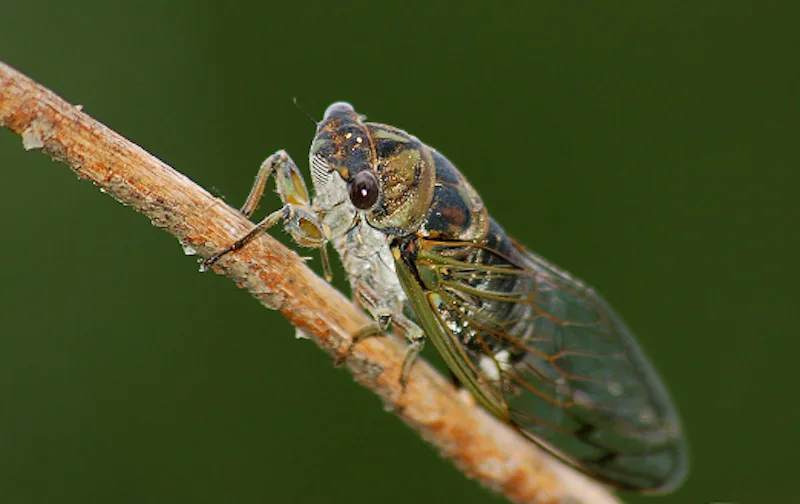
Millions of cicadas set to emerge from hiding after 17 years
Cicadas only appear above ground every 13 or 17 years, which the exact reason for is shrouded in mystery.
Those living in parts of Virginia and North Carolia may soon hear loud, widespread chirping noises, but don't be alarmed. They are just the sounds emanating from millions of surfacing cicadas.
Fortunately, they don't pose a threat to humans. Instead it's the noise they make that can be bothersome. So why would you be hearing all these sounds all of a sudden?
That's because up to 1.5 million of the cicadas, per acre, will be emerging from a 17-year hideout underground. Those living in southwest and western Virginia, as well as parts of North Carolina, could be witness to this unique phenomenon, according to a Virginia Tech news release.
Cicadas, which are large, transparent-winged insects that occur either annually or periodically, only emerge every 13 or 17 years, which is a mystery, but it's been suggested it's to avoid predators.

Cicada. Photo: Getty Images.
“Communities and farms with large numbers of cicadas emerging at once may have a substantial noise issue,” said Eric Day, Virginia Cooperative Extension entomologist in Virginia Tech’s Department of Entomology in the College of Agriculture and Life Sciences, in the press release.
“Hopefully, any annoyance at the disturbance is tempered by just how infrequent — and amazing — this event is.”
According to Virginia Tech, the noise people hear is the mating call of the males who are trying to attract females. For most, the droning song of the cicada is "nothing more than a slight annoyance, or fascination, especially with these large broods which only appear roughly once every two decades."
However, for ornamental tree growers, and orchard and vineyard managers, the sound signals a possible danger to their juvenile trees, vines and saplings.
“Cicadas can occur in overwhelming numbers and growers in predicted areas of activity should be watchful” said Doug Pfeiffer, a professor and extension specialist in the Department of Entomology.
Sources: CNN | Virginia Tech










